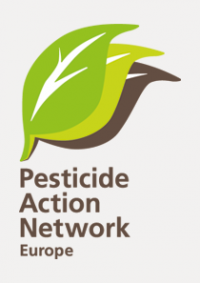Today, PAN Europe and PAN International are calling on the WHO and the OECD, via a letter, to reject and condemn EFSA's methodology to assess cocktail effects of pesticides. Salomé Roynel, Campaigner at PAN Europe commented: “In this letter we argue, based on our work, that EFSA's methodology is inherently biased. It was designed by and for industry, that is, in a way that does not compromise the approval/renewal of active substances. This ‘desired-outcome’ approach is light years away from what science and risk assessment require. Not to mention that it gives little consideration to the actual adverse effects on humans and the environment of combined pesticide exposure.”
PAN Europe calls on the WHO and the OECD to refrain from aligning their name and reputation to such work, which is more of a data manipulation than a scientific exercise. Instead, we recommend looking at the methodology promoted by the EU Chemical Strategy for Sustainability: the Mixture Assessment Factor (MAF).
Background
Since 2005, EU regulators are legally required to assess cumulative effects of pesticides to address the risk of cocktail effects rising from a combined exposure to multiple substances. For that purpose, the European Food Safety Authority (EFSA) has started to develop its own methodology in 2008. However, this methodology contains initial biases and multiple shortcomings which were highlighted again in PAN Europe’s recent position paper. Namely, EFSA’s work relies on a probabilistic modelling developed in the context of the EU-funded research program ‘ACROPOLIS’, with the participation of industry and industry-linked scientists. The result is a more than dubious approach to manipulating the outcome of the risk assessment.
Despite our repeated alerts (reports, analysis, feedbacks to consultations, letters, position papers etc.), EFSA has never questioned its approach, which will lead it to finalise its work by 2030!! However, now that the EU Chemical Strategy for Sustainability makes of the cocktail effects prevention a priority and promote an alternative methodology (Mixture Assessment Factor), EFSA feels the need to defend its own industry-based methodology. And what better method than international standardization to ensure that its method remains untouched? (and at the same time to exempt oneself from EU new political commitments).
From 18 to 20 October 2021, EFSA organised an international workshop to promote the standardization of its own industry-designed methodology at international level. On this occasion, the same 'experts' linked to the industry lobby ILSI were once again called in to defend this methodology. Boobis and Moretto have both been removed of EFSA’s panels of experts due to open conflicts of interests. Their links with industry are, therefore, no longer a secret to anyone, especially to EFSA, which continues to invite and give them a voice at the highest forums of discussion (even if not on behalf of the EFSA in some cases).
Salomé Roynel concluded: “PAN Europe, supported by PAN International, cannot remain silent in the face of such an affront and mockery of the principles of independence! That is why we are sending this letter to the WHO and OECD, and expect a reassuring response, that science (and thus human and environmental health) prevails over the interests of industry.”
Learn more about our work on cocktail effects here.
